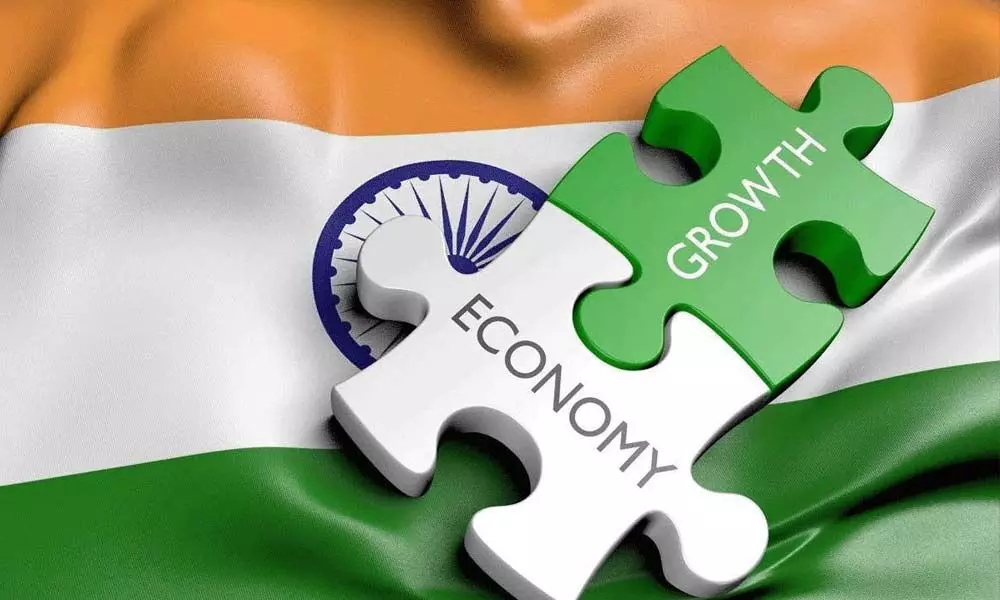More than full GDP recovery in FY22
Structural reforms, policy push, Budget measures will strengthen economic fundamentals: DEA
image for illustrative purpose

GST collections in Jan 2021 have been the highest monthly collections so far in the history of this tax regime
- Sustained recovery continued in Jan
- PMI remained in the expansionary zone
- FDI, FPI flows fueling GDP rebound
New Delhi: As the economy emerges out of the pandemic-induced slowdown, a report by the Department of Economic Affairs (DEA), Union Ministry of Finance, has said that the outlook for growth and inflation of the country in the upcoming financial year (2021-22) indicates a 'more than full recovery' of the economy.
The 'Monthly Economic Review' for January 2021 said the structural reforms and the policy push under the Atmanirbhar Bharat Mission along with the slew of measures announced in the Union Budget 2021-22 towards achieving broad-based inclusive growth will strengthen the fundamentals of the economy and bring it back on to a strong and sustainable growth path in the year ahead."Growth and inflation outlook in 2021-22 portends more than full recovery," it said.
The report added that a sustained and strengthening economic recovery continues to be witnessed in January, 2021 across key high frequency indicators such as power consumption, inter and intra state mobility, manufacturing capacity utilisation, business expectations and consumer confidence.
GST collections in January, 2021 have been the highest monthly collections so far in the history of this tax regime, it said, adding that manufacturing and services PMI remain in expansionary zone while augmented credit growth, surging FDI and FPI flows and private placement of corporate bonds are providing critical financial cushion to the real recovery.
The DEA report highlighted that the Economic Survey, 2020-21 has drawn attention to the V-shaped economic recovery as a testimony to the resilience and intrinsic strength of the Indian economy. It noted that the survey roots for growth through counter cyclical fiscal policy emphasizing that growth alone is the answer to sustaining the public debt burden of the country.
The Budget, 2021-22 presented two days later implemented the counter cyclical fiscal policy by raising the target of fiscal deficit to 6.8 per cent of GDP, more than double the Fiscal Responsibility and Budget Management Act (FRBM) target.
"With the expanded borrowing programme mostly meant for funding the enhanced capital outlay, the Budget has set in place the multiplier impact on growth to support the prescribed fiscal glide path tapering to 4.5 per cent of GDP in 2026," it said.
It said that with the International Monetary Fund (IMF) keeping India's growth projections elevated at 6.8 per cent in FY23, India is back as the fastest growing major economy in the world.

